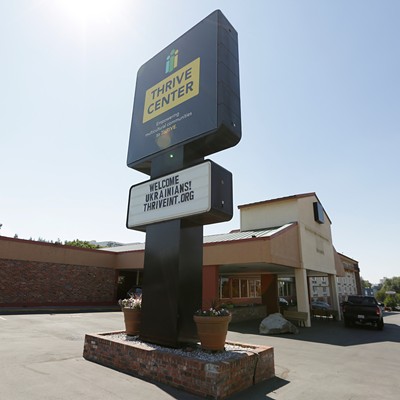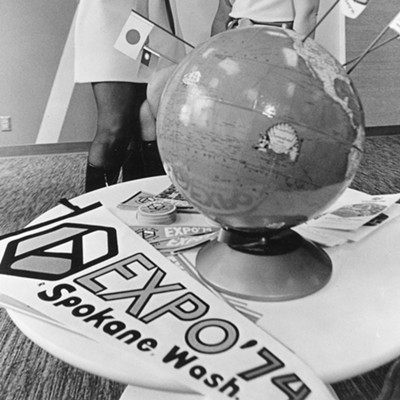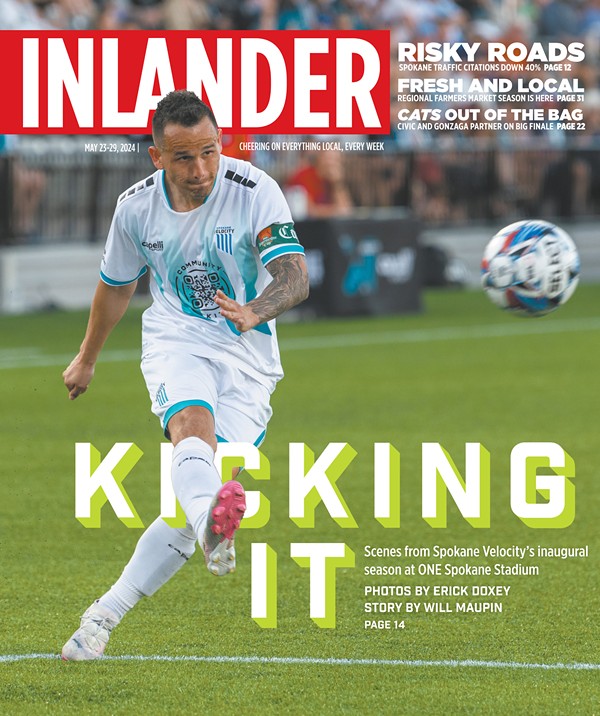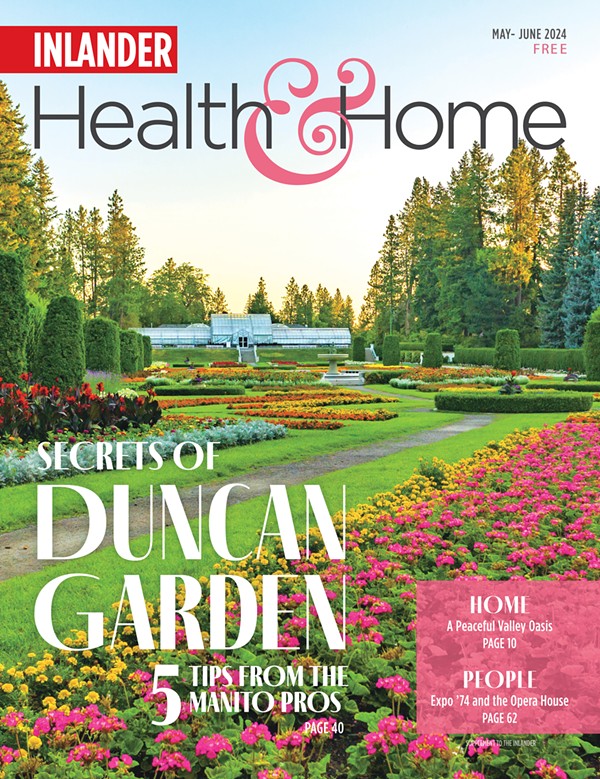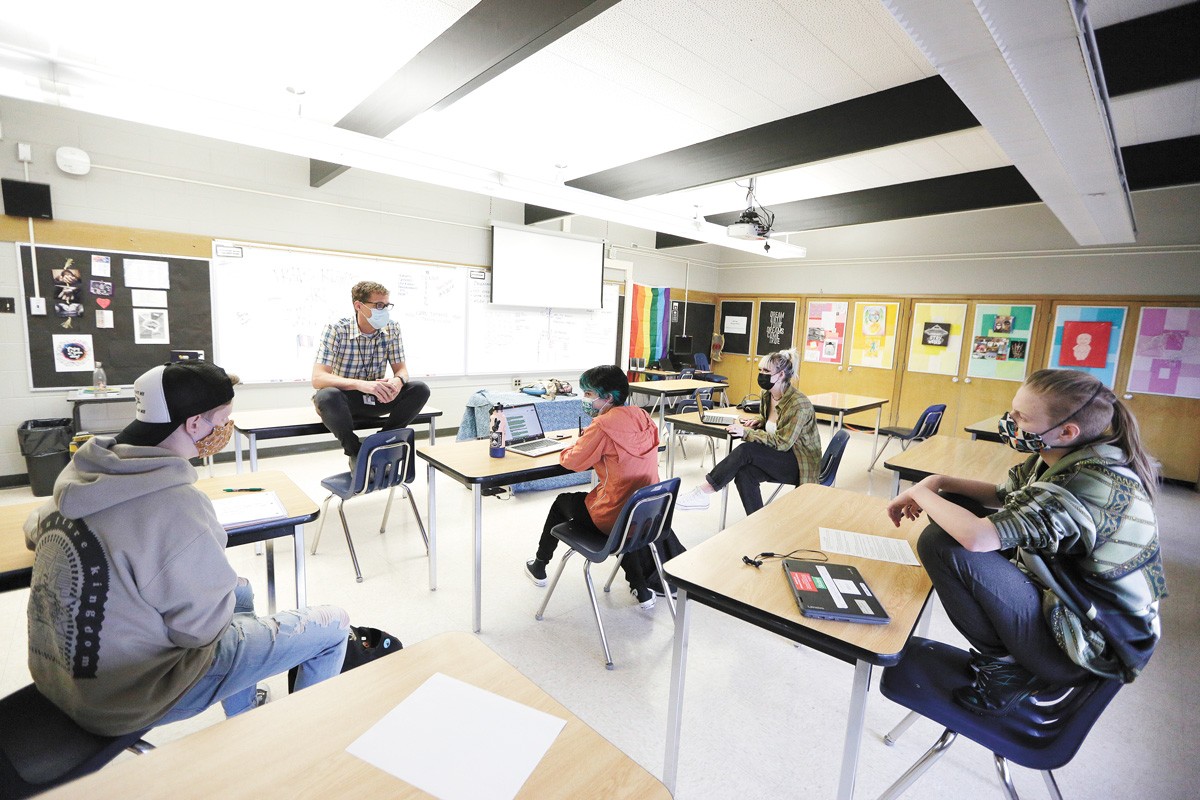
The past year has emphasized an even greater reliance on technology than already existed, one that highlighted generational differences as much as music or fashion ever does, if not more so.
That gap inspired a creative collaboration between teenagers at Spokane's Community School and the community's senior citizens that managed to push both generations into exciting new realms using technology they'd never worked with before.
Like so many other things in the age of COVID, this joint venture between the Retired and Senior Volunteer Program of Spokane County and the students evolved dramatically along the way.
When RSVP of Spokane County Director Justin Eisenstadt first approached the projects-based high school, he envisioned an intergenerational storytelling program with an emphasis on the written word. What they came up with instead was a pilot project in which students created five- to 10-minute podcasts centered on the experiences and stories of senior citizen volunteers.
Eisenstadt originally hit on the concept after he began attending Cyber Senior webinars to learn how to improve the online skills of seniors for RSVP, a program sponsored by YWCA of the Inland Northwest.
"I reached out to get technology training to our seniors," Eisenstadt says. "As I started talking with them about this training, it became clear the training needed to be centered around a specific activity. The one area that stood out to me that could function virtually was education and youth mentoring, especially with students already doing online learning."
But podcasting wasn't on his mind.
"Justin's original idea was more of a pen pal, where they were writing back and forth," says Nathan Seaburg, facilitator at the Community School. "We saw an opportunity with students of these talents to take a bigger swing. Part of what attracted us to the podcast idea was the collaboration. There was shared journaling at the beginning ... but one of the things we are actively looking to promote is how do we collaborate over authentic products in a meaningful way where students are interdependent on each other and on the community."
Seaburg and the Community School are equipped with video software, three ad hoc studios and a few microphones. They are also lining a couple of closets with quilts they will use as studios when they want to give the audio a crisper sound.

To learn what works well and what doesn't, the students spend time listening to podcasts. And while they have a lot of creative freedom with their podcasts, each receives some similar guidelines.
"They will be given an overarching question or theme to help them guide the story they want to tell for this podcast," Seaburg says. "It's become two [senior citizen] volunteers for every group of three or four students. It'll be interesting to see — do they choose one story or some hybrid of both life experiences? It's all about the intergenerational experience and where they have common ground."
"It is a huge undertaking — a lot of things have to come together," Seaburg says. "Our students will be in these Microsoft Team meetings with these older people who don't have the best track record navigating technology. They have to develop a rapport and a relationship over the internet. It is easier to disengage, turn your camera off and scroll through social media. To create a podcast around a certain theme — there are a thousand ways this could go wrong and it is daunting."
Eisenstadt's original vision for the seniors' writing project didn't completely disappear in the process. When he was researching how to engage seniors online, his contact at the Cyber Senior webinars gave him information about a study being conducted at McMaster University in Canada about the benefits of journaling on cognitive aging through an app they developed called Writlarge.
The study started in 2019 as a purely academic project with an interest in what loneliness and social isolation means for older individuals, according to Victor Kuperman, one of the researchers. Kuperman and his colleagues have since shifted the study to examine loneliness during the pandemic. They developed a different version of the Writlarge app for the specifications of the students to aid Eisenstadt's project.
As the senior citizens journaled in the app, learning some new technological skills in the process, the McMaster researchers gained valuable data for their study, and the Community School students got some of the scaffolding for the stories in their podcasts.
When the students complete their podcasts this month, they'll have the opportunity to have them heard by a larger audience than their classmates. Eisenstadt hopes to share some of them through the Retired and Senior Volunteer Program of Spokane County website, rsvpspokane.org, and its social media. You can hear eight episodes of The Community School Presents: My Favorite Mistake at rss.com/podcasts/thecommunityschool.
This pilot project has a lot of moving parts as well as the potential to put the students under a lot of pressure, but Seaburg believes they can handle it.
"There are a lot of nerves because we take some big swings here," Seaburg says. "I have to remind myself to bet on the students because they will always come through." ♦





